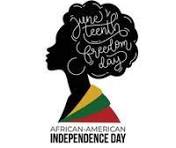Banning books not only affects students but also teachers in a negative way. As books are banned, teachers feel that their expertise is being undermined, which leads to a lack of trust. History indicates that limiting a student’s exposure to various perspectives not only stifles critical thinking but also hinders the understanding of crucial societal issues. Furthermore, banning books discourages students from developing critical thinking skills. Teachers believe the ability to analyze and think critically is essential for personal growth and academic success. Despite the ban, students may choose to read the banned book if given the opportunity.
According to the Diverse Books Impact Study, introducing diversity in classroom libraries has had a positive impact. The study found that academics improved when diverse books were added to the library. Additionally, students increased their weekly reading time by an average of 4 hours.
According to The National Coalition Against Censorship, “Even books or materials that many find ‘objectionable’ may have educational value, and the decision about what to use in the classroom should be based on professional judgments and standards, not individual preferences.”
Banning Books in the Crossfire
Before the ban on certain books, many students identified more positively with the characters in the books than they did with their peers. Others found that reading fiction helps students better understand their peers and are less likely to formulate judgments.
Books develop a student’s imagination and creativity. They provide students with the ability to travel to different places in the world. Students can identify with the happy and the sad experiences contained in many books.
School libraries and classroom libraries are at risk as bans grow. There needs to be free speech and healthy libraries for students to experience and choose books that help them to grow academically, emotionally, and socially. Most adults trust librarians to select age-appropriate materials. Thus, parents should not restrict other students’ book choices and freedom of thought.
Reasons for the Ban
Some adults have a fear of the unknown. Thus, unfamiliar content in a book presents challenging ideas and causes uneasiness to some. Another reason for the ban is to protect students. It is felt that young minds need protection because a book is inappropriate for children and adolescents. People who want books banned think the books harm or misguide a student’s thinking.
Individuals believe that books that challenge societal norms must be kept out of schools and public libraries. Such books can pose a threat to certain ways of thinking. The concept of thinking itself, as well as the power that it holds, can also be a threat. The act of suppressing different viewpoints and voices is a way to maintain control. Many books challenge an individual’s strongly held beliefs. The power of books causes fear in a few people. They fear reading motivates violence, hatred, or other harmful actions.
The topic of banning books is a multifaceted issue that requires careful consideration. On one hand, it is essential to uphold the freedom to read and discover new concepts and viewpoints. On the other hand, we must also recognize the possible harm and adverse effects that certain books may have on individuals and society. People need to decide what is appropriate for their children and not for others.



